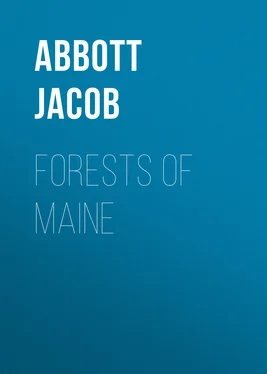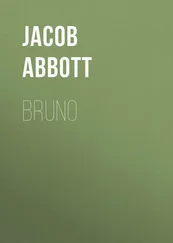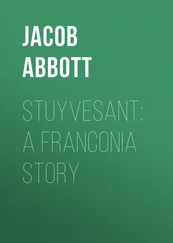Jacob Abbott - Forests of Maine
Здесь есть возможность читать онлайн «Jacob Abbott - Forests of Maine» — ознакомительный отрывок электронной книги совершенно бесплатно, а после прочтения отрывка купить полную версию. В некоторых случаях можно слушать аудио, скачать через торрент в формате fb2 и присутствует краткое содержание. Жанр: foreign_children, История, foreign_edu, foreign_antique, foreign_prose, на английском языке. Описание произведения, (предисловие) а так же отзывы посетителей доступны на портале библиотеки ЛибКат.
- Название:Forests of Maine
- Автор:
- Жанр:
- Год:неизвестен
- ISBN:нет данных
- Рейтинг книги:3 / 5. Голосов: 1
-
Избранное:Добавить в избранное
- Отзывы:
-
Ваша оценка:
- 60
- 1
- 2
- 3
- 4
- 5
Forests of Maine: краткое содержание, описание и аннотация
Предлагаем к чтению аннотацию, описание, краткое содержание или предисловие (зависит от того, что написал сам автор книги «Forests of Maine»). Если вы не нашли необходимую информацию о книге — напишите в комментариях, мы постараемся отыскать её.
Forests of Maine — читать онлайн ознакомительный отрывок
Ниже представлен текст книги, разбитый по страницам. Система сохранения места последней прочитанной страницы, позволяет с удобством читать онлайн бесплатно книгу «Forests of Maine», без необходимости каждый раз заново искать на чём Вы остановились. Поставьте закладку, и сможете в любой момент перейти на страницу, на которой закончили чтение.
Интервал:
Закладка:
"There, you see that there is no danger."
When the man had drawn this log up to the shore, he went for another; and he had to sail upon this second one a long distance, in bringing it to its place. He pushed himself along by running his pole down to the bottom, and pushing against the sand.
"Could I sail upon a log?" asked Marco.
"No," replied the millman; "you'd roll off."
"How did you learn to do it?" asked Marco.
"Oh, I learned when I was a boy," replied the millman.
"Did you roll off when you were learning?" asked Marco.
"Yes," said the man. "I've been off the log into the water many a time."
"And how did you get out again?" said Marco.
"Oh, I could swim," he replied; "and as soon as I came up, I would paddle back to the log, and climb up upon it. Once, however, I came very near being drowned."
"How was it?" said Marco.
"Why, I was on the upper side of a boom"–
"A boom?" said Marco, "what is that?"
"A boom!" repeated the millman; "don't you know what a boom is? It is a place to catch logs. They go to some cove or eddy, where the water is pretty still, and chain logs together, end to end, so as to form a long line on the lower side of the eddy, and then along up the middle of the river a little way, so as to enclose a space to catch the logs."
"What do they fasten the boom to?" asked Marco.
"Why, the lower end," said the millman, "is fastened to the shore, by means of a very strong post, or an iron staple set into the rocks. The other end, which is out in the middle of the stream, is fastened to some island, if there is one, or, if not, to a pier built up from the bottom."
"Well," said Marco, "tell on about your getting in."
"The boom was full of logs, and I was upon the upper side of it, at work with some other men. I was on a log trying to find the mark, and I fell in."
"What made you fall off?" asked Marco.
"I don't know," replied the millman. "I was not much use to logs then. I was trying to find the mark."
"What mark?" asked Marco.
"The owner's mark," said the millman. "The owners all mark their logs, when they get them out in the winter, and then we separate or sort them in the booms. Sometimes the mark is on the under side of the log, and so we have to turn it over in the water to find it."
While all this conversation had been going on, the millman had been moving about over the water with the various logs, Marco accompanying him, and keeping as near to him as possible, walking along the shore, and sometimes on the logs which were resting by one end on the shore. As the millman was describing the system of marking the logs, he was sailing along very near to Marco, and he immediately began to turn the log over under him, saying—
"For instance, look here, and see me turn up the mark of this log."
Marco watched the log, as it slowly revolved, until presently there came a sort of hieroglyphical mark upon one end, made by crosses and lines cut into the wood.
"Every owner has his particular mark," said the millman.
"Whose mark is that?" asked Marco.
"I don't know," said the man, "but they know at the mill. They have a register of them all at the mill."
"I wish I could turn over a log, standing on it, in that way," said Marco.
"You couldn't," said the millman. "The only way by which you can sail safely on logs, would be to put two together, and make a sort of raft."
"How?" asked Marco.
"By nailing short pieces of boards across from one log to another. Then they would not roll."
"Well," said Marco, "if I could only get a hammer and some nails."
The millman told him that perhaps they would let him have a hammer and some nails at the mill; and Marco, accordingly, went up to inquire. They told him they had a hammer, but they had no nails to spare. So Marco failed of getting the means of making a raft. He forgot to go back to the millman to get the rest of his story, but, instead of it, he rambled down the bank of the river, until he came to a place where there was an old fence, which had fallen down, and the nails were sticking out of the boards. He now wished that he had borrowed the hammer at the mill, and he tried to persuade a boy, who was standing there, to go and borrow it for him.
The boy told him that a stone would do very well for a hammer.
"So it will," said Marco; "find me a good one, and bring it to this old fence."
The boy brought Marco a stone, and Marco began to knock out the nails. Very soon, however, he set the boy at work upon the nails, while he went in pursuit of some short boards, to nail across from one log to the other. He found some, which he thought would answer, without much difficulty, and collected them together near the logs; and, soon afterwards, the boy brought him the nails.
The logs were lying side by side, with two ends resting upon the shore, the two other ends being out towards the stream. Marco concluded to nail first the two ends which were towards the shore, they being nearest, and being also more steady than the others. He accordingly laid one of his short pieces across, and nailed it as well as he could, using the stone for a hammer.
"Now," said he to the boy, "I'll put another board across at the middle, and one more at the other end, and then, if I can find something for a pole, I'll take a little sail. Look about a little, my boy, won't you," continued he, "and see if you can't find a pole, while I am nailing the other boards."
The boy accordingly went away in pursuit of a pole, while Marco nailed first the middle board, and then the end one. He came back just after Marco had got the first nail of the end board driven in, and as soon as he came in sight of the logs and of Marco, he exclaimed—
Конец ознакомительного фрагмента.
Текст предоставлен ООО «ЛитРес».
Прочитайте эту книгу целиком, на ЛитРес.
Безопасно оплатить книгу можно банковской картой Visa, MasterCard, Maestro, со счета мобильного телефона, с платежного терминала, в салоне МТС или Связной, через PayPal, WebMoney, Яндекс.Деньги, QIWI Кошелек, бонусными картами или другим удобным Вам способом.
Интервал:
Закладка:
Похожие книги на «Forests of Maine»
Представляем Вашему вниманию похожие книги на «Forests of Maine» списком для выбора. Мы отобрали схожую по названию и смыслу литературу в надежде предоставить читателям больше вариантов отыскать новые, интересные, ещё непрочитанные произведения.
Обсуждение, отзывы о книге «Forests of Maine» и просто собственные мнения читателей. Оставьте ваши комментарии, напишите, что Вы думаете о произведении, его смысле или главных героях. Укажите что конкретно понравилось, а что нет, и почему Вы так считаете.












